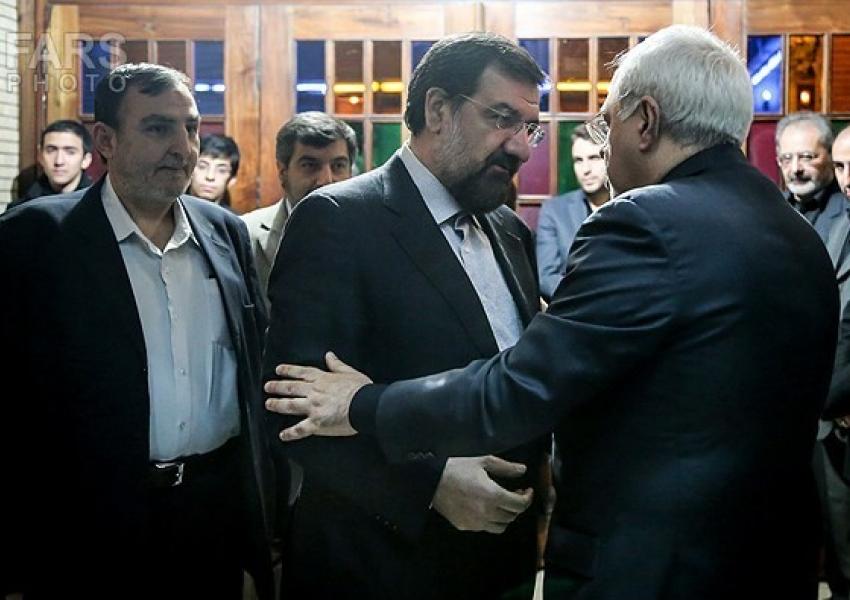
Likely Election Rivals Zarif And Rezaei Clash Over Talks With US
Foreign Minister Mohammad-Javad Zarif on Friday told Mohsen Rezaei (Rezaee), Secretary of Iran’s Expediency Council, that opinions of officials who are not directly in charge of the foreign policy apparatus and nuclear negotiations should not be "confused with state policy." In an interview with the Financial Times Rezaei had said that the US could take around a year to lift its sanctions before asking Iran to go and negotiate with them.
“Opinions of officials who are not directly in charge of the foreign policy apparatus and nuclear negotiations should not be confused with state policy,” Zarif said. Both Zarif and Rezaei are possible candidates in June’s presidential election.
“[The] Iranian polity is vibrant and [its] officials express diverse opinions but those opinions should NOT be confused with state policy,” Zarif tweeted. Reminding Rezaei, whom he did not name, of his own position as foreign minister and chief nuclear negotiator, Zarif said he would shortly present Iran’s “constructive concrete plan of action through proper diplomatic channels.”
In his interview with the Financial Times published Friday, Rezaei said Iran was ready to discuss with world powers the revival of its 2015 nuclear deal if they provided a “clear signal” that sanctions would be lifted within a year.
“They can announce and reassure us that all sanctions imposed after the JCPOA [the 2015 nuclear accord] would be lifted in less than one year and tell us to go and negotiate this process,” Rezaei, the former commander of the Revolutionary Guards (IRGC), said. “We have to see every month during the talks that some sanctions which are of urgency to us are being lifted.”
The conservative Entekhab website, in a short article ‘Mohsen Rezaei's Signal To US?’ agreed with the foreign minister that Rezaei had “no place” in foreign policy. “Moreover, his signals [to the US] are in contradiction with the official policy which [demands] the lifting of all sanctions in one step.”
In an interview with Mostafa Faghihi, editor-in-chief of Entekhab, on November 29 Zarif suggested that some principlists were making overtures to the US to convince them that working with a new administration would be easier than working with President Hassan Rouhani. “We have kept silent about these [overtures] but it doesn’t mean that we don’t notice such signals,” Zarif said.
In a tweet on Friday, Faghihi said Rezaei’s remarks were “not only an unprofessional withdrawal” that could weaken Zarif’s position in international talks but also conveyed a dangerous message: “Mr America, it’s easier to reach agreement with Principlists. Delay the talks for a few months (at least until after [Iran’s presidential] elections [in June]!”
Iranian journalist Erfan Haji-Parvaneh has also related Rezaei’s remarks to June’s presidential election. “We only had three options: To fight, to make peace or to buy time. So far we have bought time. Now that we are close to elections the dispute [among politicians] is how to make peace (to negotiate),” he wrote in a tweet.
Potential candidates in Iran will usually wait until the day of official registration, May 11 this time, to announce their candidacy. In line with tradition, no one has yet announced an intention to run in the June 18 elections. Zarif has kept the Iranian media and politicians speculating.
Rezaei, who ran unsuccessfully against Mahmoud Ahmadinejad in 2005 and 2009, said on Wednesday [March 3] it was “too early” to announce his plans. On January 8, Etemad newspaper claimed that those who had met with him around that time felt a strong resolve in him to run.






